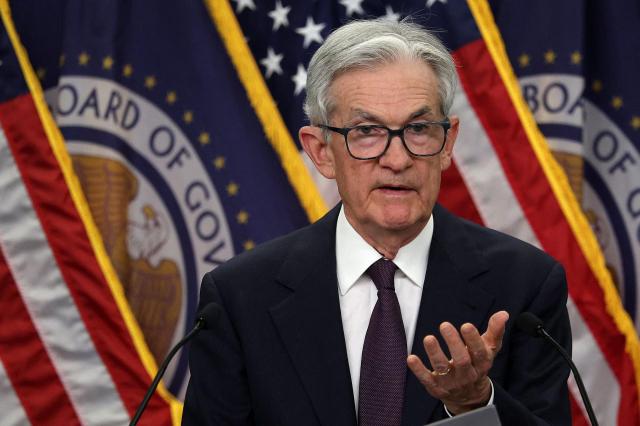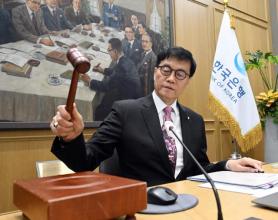
SEOUL, June 19 (AJP) - The U.S. Federal Reserve has opted to keep interest rates unchanged for a fourth consecutive meeting, a decision that is expected to prompt South Korea’s central bank to adopt a more cautious approach to monetary easing in the month ahead.
The Fed’s decision, made during the June 17–18 Federal Open Market Committee (FOMC) meeting, leaves the U.S. benchmark rate at 4.25 to 4.50 percent.
The Bank of Korea (BOK), which lowered its key rate to 2.50 percent in May from 2.75 percent, has now widened the rate gap with the United States to a record 2 percentage points.
Analysts warn that further unilateral cuts by the BOK could heighten the risk of capital outflows and add pressure to the already volatile won-dollar exchange rate.
The growing divergence in monetary policy comes at a delicate time for South Korea’s financial system. After months of stagnation, the country's household lending is again on the rise. Many observers now expect the BOK to hold rates steady at its next meeting in July as it reassesses financial stability risks.
In Washington, the Fed is holding firm against growing political pressure to accelerate rate cuts, despite calls from President Donald Trump and Treasury Secretary Scott Besant to ease monetary policy more aggressively. Citing persistent inflation risks, particularly those linked to recent tariff increases, Fed Chair Jerome Powell emphasized the need for restraint.
“Everyone that I know is forecasting a meaningful increase in inflation in coming months from tariffs, because someone has to pay for the tariffs,” Powell said during a press conference on Wednesday. “All through that chain, people will be trying not to be the ones who take up the cost, but ultimately, the cost of the tariff has to be paid. And some of it will fall on the end consumer.”
In South Korea, BOK Governor Rhee Chang-yong echoed Powell’s cautious tone in a June 12 speech marking the central bank’s 75th anniversary.
While noting that the won-dollar exchange rate had recently stabilized in the mid-1,300 won range, Rhee warned that renewed volatility remained a risk amid global monetary uncertainty and ongoing trade disputes.
He defended the May rate cut as necessary to support an economy that had suffered through more than a year of near-zero or negative growth.
Rhee expressed particular concern about Korea’s overheated real estate market, warning that aggressive easing could fuel price inflation in the capital region without delivering a broad-based economic rebound.
Copyright ⓒ Aju Press All rights reserved.



